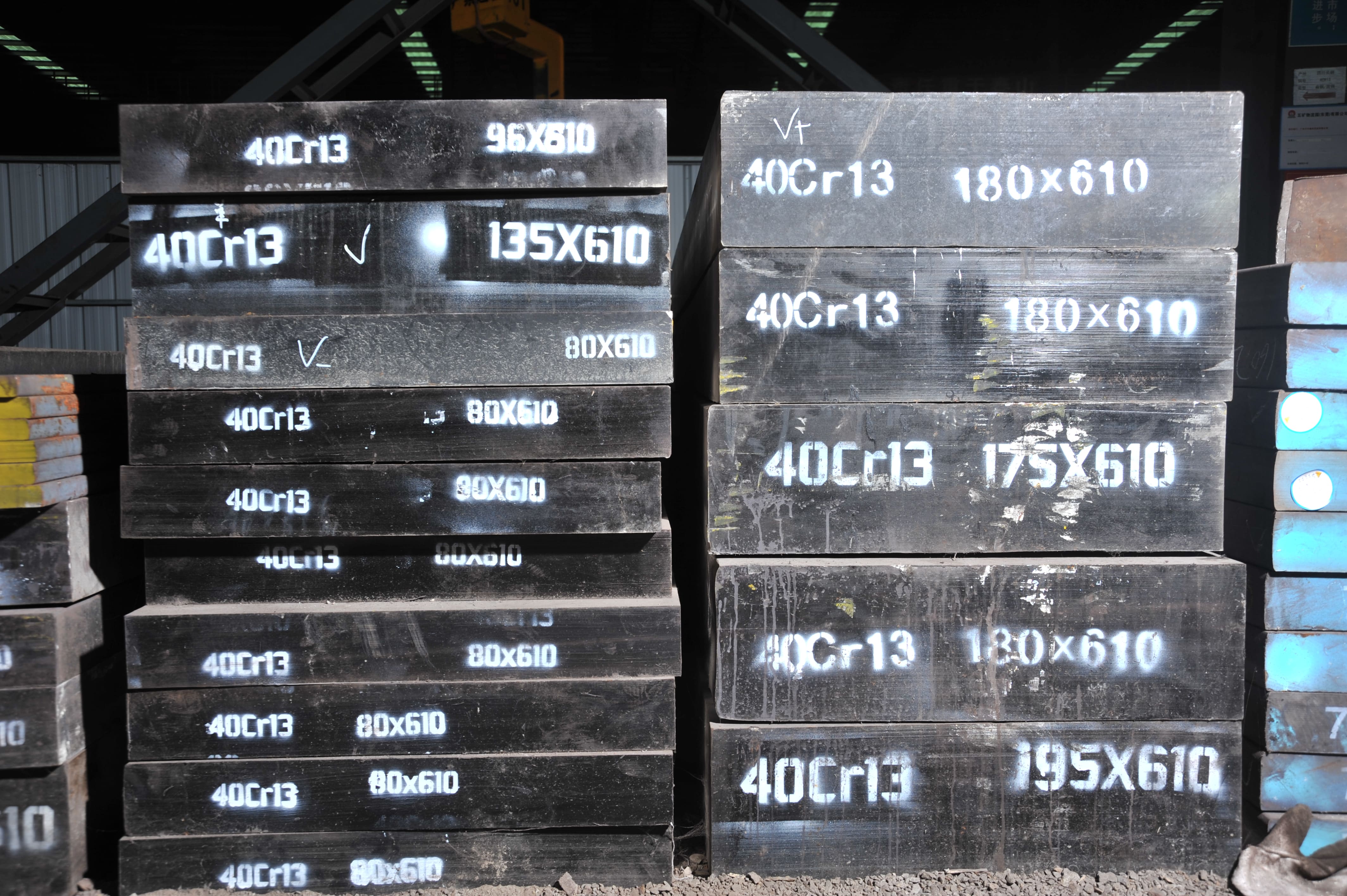-
O1 Tool Steel
O1 tool steels are original oil-hardening, "non-shrinking" tool steels that can be hardened from low austenitizing temperatures to the Rockwell C 65 range.
O1 is a general-purpose tool steel, so it can be widely used in cutting and cold stamping due to its excellent wear resistance and easy forging and hardenability.넶10 ¥ 0.00 -
FT37 Tool Steel
FT37 (9CrWMn) Oil Quenched Mold Steel is also known as Low Alloy Cold Work Mold Steel. It has certain hardenability and wear resistance, small quenching deformation, carbide distribution and fine particles. Used for blanking molds, punches, forming molds, thread rolling molds, stamping molds, ejector pins and small plastic molds, etc.
넶6 ¥ 0.00 -
4Cr13 Tool Steel
4Cr13 steel code S-136, is a martensitic stainless steel, the steel has good machinability, after heat treatment (quenching and tempering), has excellent corrosion resistance, polishing performance, high strength and wear resistance, It is suitable for the manufacture of plastic molds under high load, high wear-resistant and corrosive media, transparent plastic product molds, etc., such as heat oil pumps, valve plates, valve bearings, medical equipment, springs and other parts.
넶5 ¥ 0.00 -
4Cr13H Tool Steel
4Cr13H pre-hardened mold steel has strong resistance to nitric acid and organic acid corrosion, and is often used for parts with high hardness and high wear resistance.
넶29 ¥ 0.00 -
A2 Tool Steel
A2 is the most common grade of rebar used for making tools from metal, wood, and other materials. A2 medium carbon chromium alloy steel is a member of the cold work tool steel group designated by the American Iron and Steel Institute (AISI), including O1 low carbon steel, A2 steel and D2 high carbon high chromium steel.
A2 tool steel is a general purpose air hardening tool steel characterized by good toughness and excellent dimensional stability during heat treatment.넶6 ¥ 0.00
Alloy Tool Steel
Alloy tool steel is a type of steel that adds Cr, Mo, W, V and other alloying elements to carbon tool steel to improve hardenability, toughness, wear resistance and heat resistance. It is mainly used in the manufacture of measuring tools, cutting tools, impact-resistant tools, cold and hot molds and some special-purpose tools.
Adding Cr and Mn can improve the hardenability of tool steel. According to requirements, other elements can be added selectively or at the same time (the total amount added generally does not exceed 5%) to form a series of alloy tool steel.
Alloy tool steels are usually supplied in the annealed condition, which softens very hard materials so they can be machined or formed for use. After machining, the material is heat treated again to increase toughness and strength.
There are several tool steels available and the choice will be made according to the particular environment, especially with regard to temperature. These include cold working, hot working and high speed machining.
1. Cold work tool steel has strength, impact toughness and wear resistance. They are typically used at temperatures not exceeding 400°F / 200°C.
2. Hot work tool steel combines strength, impact toughness and wear resistance with the ability to work at higher temperatures.
3. High-speed tool steels also possess strength, impact toughness and wear resistance, and are able to maintain these properties in environments up to 1000°F / 540°C.
Alloy tool steel is widely used as cutting tools, cold and hot deformation molds and measuring tools, and can also be used to make pistons, valves, valve seats and fuel valve nozzles of diesel fuel pumps, etc.
-
Tower Structure
Tower structures are a widely used design concept in modern architecture and engineering, standing out for their excellent stability and remarkable load-bearing capacity. The importance and role of steel in the design and construction of tower structures cannot be overlooked. Steel, as a fundamental building material in tower structures, provides a solid framework, endowing buildings with limitless creative space and powerful support.
넶4 2023-02-23 -
The key role of steel's weight-bearing capacity in modern roof construction.
This article highlights the crucial role of steel's weight-bearing capacity in modern roof construction. Steel's exceptional strength, stability, and weight characteristics make it an ideal choice for handling heavy wind and snow loads, as well as other external pressures. It discusses how steel positively impacts architectural design, structural stability, and durability in modern roofs.
넶5 2023-02-23
News
Products
Offers excellent, comprehensive customer service every step of the way. Before you order, make real time inquiries through...
Inquiry
Contact us
106 Jinghai West Road, Chang 'an Town, Dongguan City, Guangdong Province, China
- +86-0769-85441280
- +86 13201032726
- info@mouldsteels.com
Remark:
Office Work Time:
9:00 am – 6:00 pm
(except on state holidays)
@Copyright 2023 Dongguan Kaiding Hardware Co., Ltd.




















